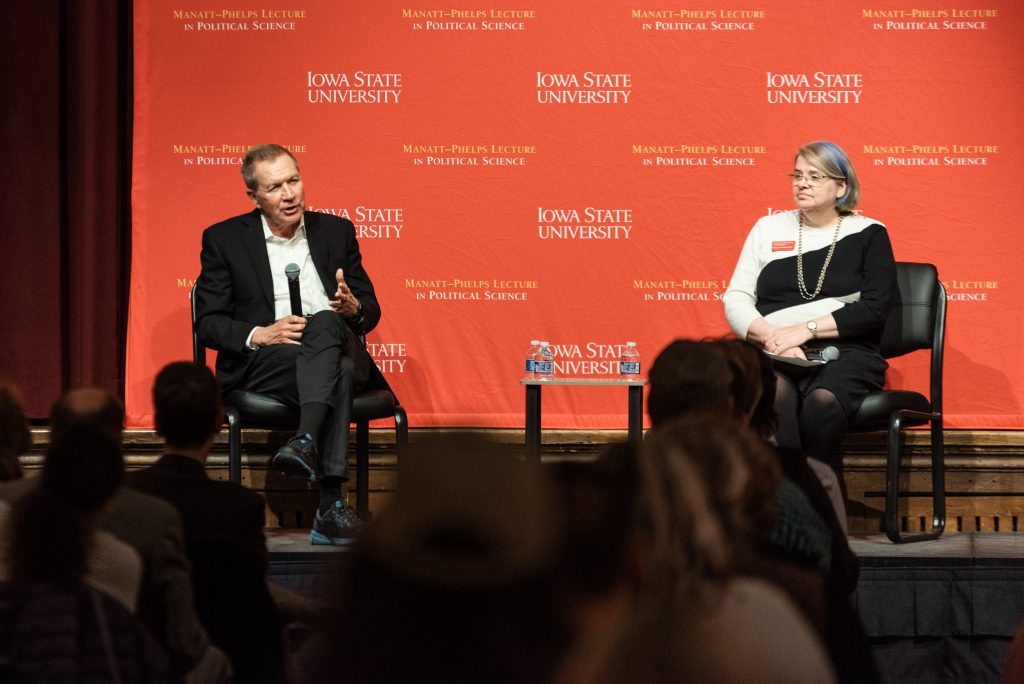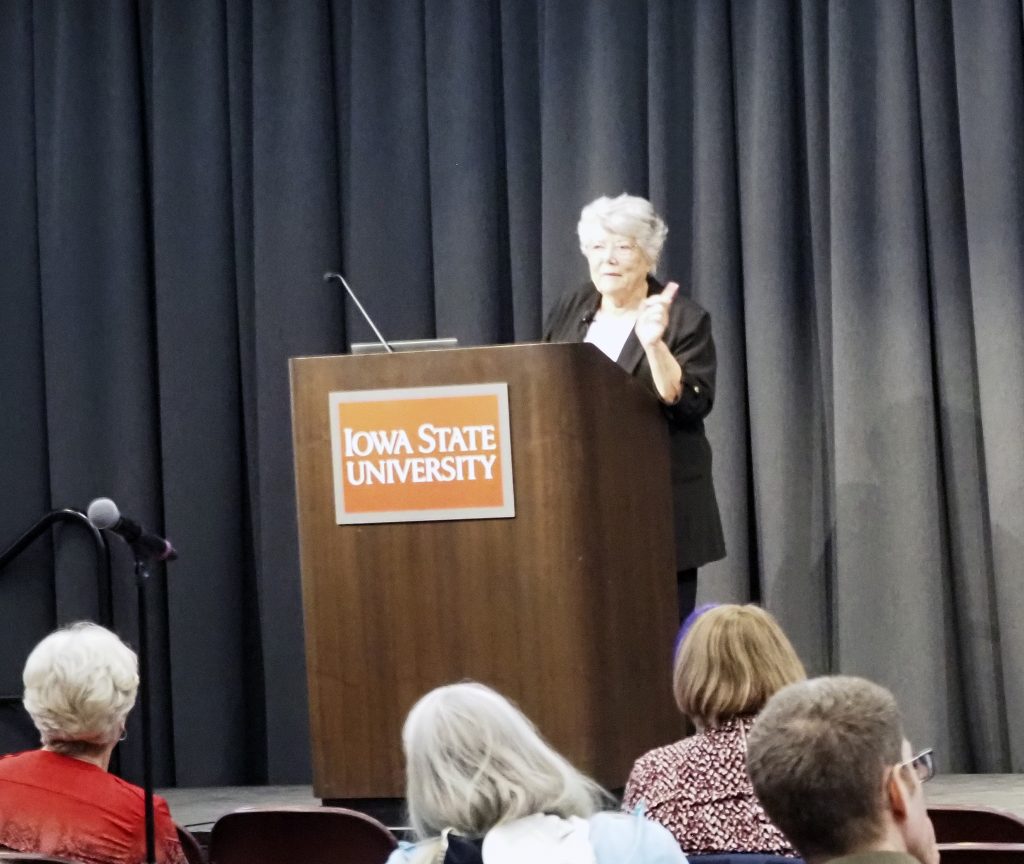The Carrie Chapman Catt Center for Women and Politics sponsored the visits of two nationally known figures in March and April who discussed social innovation and women’s suffrage.
On March 27, former Ohio governor John Kasich participated in a moderated discussion with Karen M. Kedrowski, director of the Catt Center, about socially responsible innovation for the 2024 Manatt-Phelps Lecture in Political Science. The event was held in the Durham Great Hall of the Memorial Union.
Before the presentation, Kasich toured the Student Innovation Center with Jim Oliver, executive director of the center and enjoyed a reception with several members of the Manatt family as well other guests from Iowa State and the greater Iowa community.
The evening’s discussion opened with Kedrowski asking Kasich to define what he means by “socially responsible innovation.” In his response, Kasich said that it’s human nature to innovate and that while this can lead to great improvements in technology and society, we also have to think about potential negative impacts. He stated that we need to approach innovation with humility.

He said he feels when someone has been given a gift such as scientific brilliance, “there’s an obligation that goes with it to engage in things that can improve our society, that can improve the lives of people.” He returned to the subject of “I’ culture versus “we” culture several times during the discussion, stating that the drive behind any movement to change today’s culture to a “we” culture comes from the bottom up.
When discussing innovation and democracy, Kasich expressed concern over the effect of deep fakes and social media on people’s ability to discern the truth, or even their desire to leave their own “silos” to seek out accurate information.
Asked what role government should play in holding social media platforms accountable or establishing “guardrails” for innovations in technology, Kasich said that he thinks the answer lies in a combination of government officials and people in the private sector with both integrity and brilliance.
The event was sponsored by the Department of Political Science, the Student Innovation Center, the Carrie Chapman Catt Center for Women and Politics, and the Committee on Lectures (funded by Student Government).
On April 17, scholar and author Sally Roesch Wagner presented what she described as an “alternative history” of the U.S. women’s suffrage movement during her lecture titled “A Stolen History: The REAL Story of the Suffrage Movement.” The event was held in the Sun Room of the Memorial Union.
Wagner began her discussion with a look at how the American Revolution and the ratification of state constitutions and the U.S. Constitution changed the legal status of women in the former colonies, as well as negatively impacting the enslaved people and Native Americans who shared the land.

Wagner, who has authored several books on how early U.S. suffragists were influenced by Native American women, discussed the influence that the Haudenosaunee had on three organizers of the 1848 Seneca Falls Convention—Elizabeth Cady Stanton, Lucretia Mott and Matilda Joslyn Gage, who were also leaders in the National Woman’ Suffrage Association at the time.
Wagner also discussed the close relationship between the women’s suffrage movement and the abolitionist movement, and how the failure to enfranchise women after the Civil War split the women’s suffrage movement.
Wagner ended the lecture with a discussion of Anthony Comstock, who in 1873 got legislation through Congress that gave him the right to determine what was obscene and to arrest anyone who violated his standards. Wagner pointed out that proponents arguing to block the use of the morning after pill in the case currently before the US. Supreme Court are using the Comstock Act to support their argument.
“History is repeating itself right now,” Wagner said.
Wagner’s presentation was sponsored by the Carrie Chapman Catt Center for Women and Politics, the Department of Political Science, the League of Women Voters of Ames & Story County, and the Committee on Lectures.
Recordings of both events are available on the Lectures Program website.